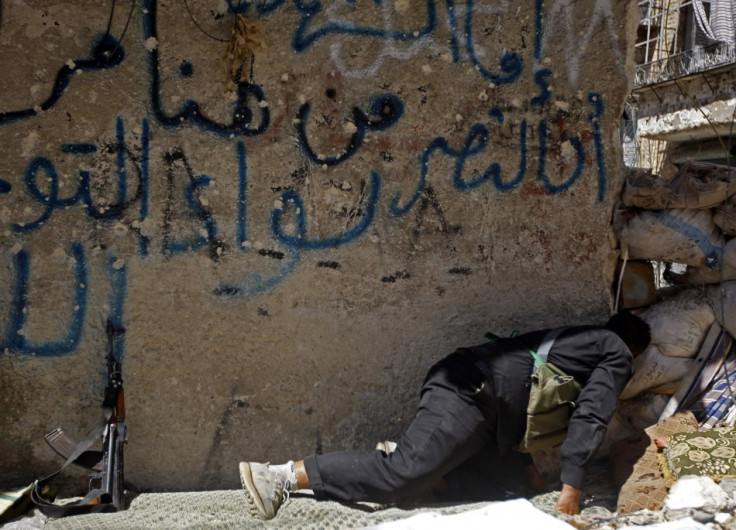Syrian Civil War: Iran Admits 'Retired' Revolutionary Guards among 48 Hostages Held by Rebels
Iran appeals for help in rescuing hostages from rebel hands - and pledges to help Assad overcome Free Syrian Army

Iran has admitted that some of the 48 Iranians taken hostage by Syrian rebels are "retired" members of the country's Revolutionary Guards.
Iranian foreign minister Ali Akhbar Salehi told the ISNA news agency that "a number of the [hostages] are retired members of the Guards and the army. Some others were from other ministries."
Howover Salehi stressed that the 48 hostages were on a religious pilgrimage when they were taken from a bus by rebels on 4 August.
The minister's statement has been backed by the Iranian embassy in Damascus, which claims the rebels had travelled to Syria using a private tour company for a pilgrimage to the Shiite shrine of Sayyida Zeinab, in southern Damascus.
Salehi was speaking to reporters on his way back from Ankara, where he asked Turkish authorities for help in freeing the hostages - in the hope that Turkey's good relations with the rebels can facilitate a release.
Salehi also revealed his government's "deep concerns" at the fate of the 48 Iranians in a letter to UN secretary-general Ban Ki-moon, and asked the UN to support Iran's attempts to secure a release.
Syrian rebels claims three of the captives are already dead, after the building in which they were being held captive was shelled by the government.
A spokesman for the Free Syrian Army, Moutassam al-Ahmad, has threatened to kill the remaining captives unless President Bashar al-Assad's forces stop their attack on the rebel bases.
The kidnapping is the latest in a series of abductions of Iranian hostages which have taken place since the Syrian civil war began. The rebels believe Iran is sending troops to reinforce President Assad's attempts to quell their uprising.
Assad returns to view
Iranian security chief Saeed Jalili has met with Assad, and told the Syrian premier that Iran will continue to support his embattled regime.
Jalili said: "Iran will never allow the resistance axis - of which Syria is an essential pillar - to break."
Referring to those countries, such as America, which have supported Assad's opponents, Jalil continued: "What is happening in Syria is not an internal issue but a conflict between the axis of resistance on the one hand, and the regional and global enemies of this axis on the other."
In response, Assad pledged to extinguish the 17-month uprising against him and cleanse the country of "terrorists" as he insists on calling opposition forces.
Pictures of the meeting were broadcast by Syria's ad-Dounia TV - the first time Assad has appeared on television since 22 July, when he retreated from public view following an explosion in central Damascus which killed four of his senior aides.
Conflicting reports in Aleppo
Meanwhile, Reuters reports that Syrian rebels have abandoned their positions in Salaheddine, a key district in the flashpoint city of Aleppo.
"We have retreated, get out of here," a lone rebel fighter said.
However, The Guardian's Martin Chulov said on Twitter that the district remains in rebel hands.
A security official told Al Arabiya that the Syrian army is launching a huge ground assault on Aleppo, in a bid to drive the rebels out of the city.
© Copyright IBTimes 2025. All rights reserved.






















